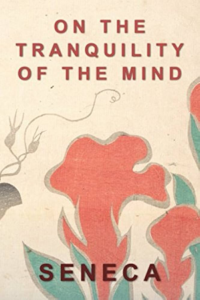
Healing minds and hearts
It is increasingly common to appeal to material goods, as we close in on ourselves and have a false idea about what happiness is, wounded souls and hearts that seek happiness where it is not found, it may be a temporary consolation, but it is not happiness, happiness balanced.
goods, as we close in on ourselves and have a false idea about what happiness is, wounded souls and hearts that seek happiness where it is not found, it may be a temporary consolation, but it is not happiness, happiness balanced.
Another book by Seneca that is quite fundamental to his thinking is about the tranquility of the soul, modern man lives in exteriority, mistakenly called objectivity or materiality, because things (beings) are part of ontological aspects and must be thought of and cultivated appropriately in interiority. , which is not subjectivity, but soul.
Said the Roman philosopher, who we posted yesterday about Wrath, now about the soul:
“If man had the opportunity to look inside himself, how he would torture himself, he would confess the truth and say: “Everything I have done up to now, I would prefer if it had not been done; When I think about everything I said, I envy the dumb; everything I desired, the curse of my enemies; everything I feared. O righteous gods! Better not to have wanted to. I made many enemies, and hatred replaced friendship (if there is friendship between evil people), and I’m not even friends with myself.
Although written at the beginning of the Christian era, the author Of the tranquility of the soul, reflects the difficulty it is for the common man and also for the wise man to maintain his serenity, faced with a spectacle of injustice and baseness (see how old this is), which he witnesses every day, is precisely the counterpoint to Anger, hatred and confrontation.
The text begins with an imaginary letter written by Sereno (of course the name is on purpose): “I will tell you what is happening to me, and you will find a name for this illness”, and at the end he states: “Sometimes, my soul rises with the magnitude of thought, becomes greedy for words and aspires to heights. So the speech is no longer mine [emphasis added]. Forgetting about the norms and rigorous criteria, I stand up and speak with a mouth that is no longer mine.”
From then on, he will reflect on how to overcome obstacles that prevent peace.
Although the discourse is moralistic and ethical, and it is no less important for this reason, the elevation that Seneca sought cannot find any other place than in a spiritual asceticism, it is also found in other cultures, Buddhism is an elevation on the path of virtues, Ghandi used the peace as a political exercise to lead India, and in the case of Christianity it is the “cures” of Jesus.
The Biblical text says, when they see the healing of a deaf-mute (Mc 7,37): “He does all things well. He makes the deaf hear and the mute speak”, and he also cured “unclean” lepers.
Sêneca. (2009) Da Tranquilidade da Alma (wordpress.com) (portuguese). transl. Lucia Sá Rebello e Ellen Itanajara Neves Vranas. Brazil, Porto Alegre: LP&M Pocket.









